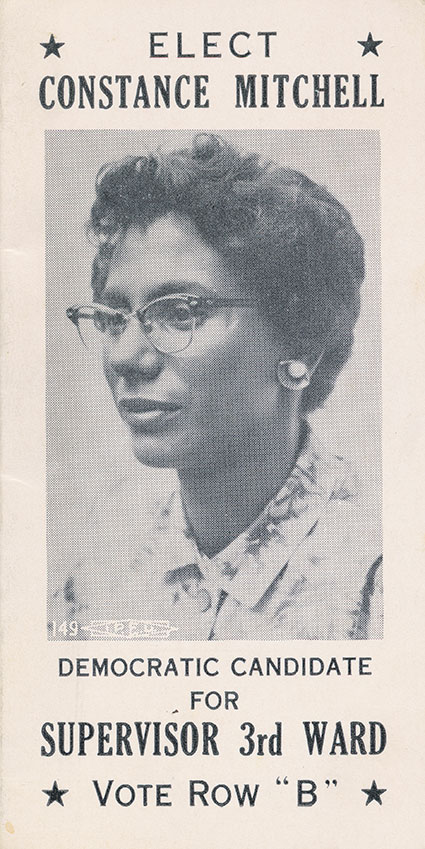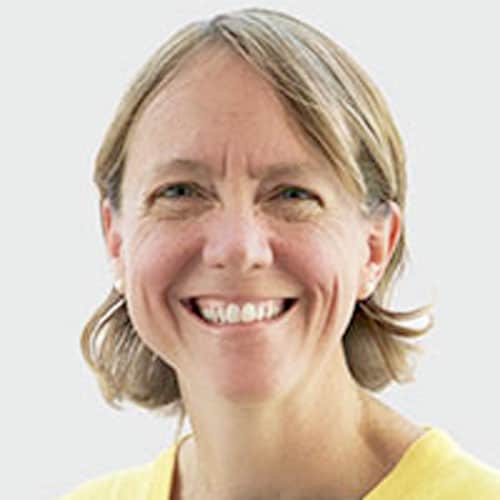 On Feb. 4, University of Rochester President Joel Seligman will present the Frederick Douglass Medal for outstanding civic engagement that honors Douglass’ legacy to Constance (Connie) Mitchell, one of Rochester history’s most influential social, civic, political and industrial activists. The presentation of the medal will take place at the Memorial Art Gallery as part of the Susan B. Anthony Legacy Awards Celebration brunch, held annually by the University’s Susan B. Anthony Center to celebrate the achievement of contemporary women.
On Feb. 4, University of Rochester President Joel Seligman will present the Frederick Douglass Medal for outstanding civic engagement that honors Douglass’ legacy to Constance (Connie) Mitchell, one of Rochester history’s most influential social, civic, political and industrial activists. The presentation of the medal will take place at the Memorial Art Gallery as part of the Susan B. Anthony Legacy Awards Celebration brunch, held annually by the University’s Susan B. Anthony Center to celebrate the achievement of contemporary women.
First presented in 2008, the Frederick Douglass Medal is awarded to an individual nationwide who represents the ideals for which Douglass stood and who has contributed to the educational life at the University or in the community, state, or nation. It is a joint initiative of the Office of the President and the University’s Frederick Douglass Institute. Previous recipients include Frederick Jefferson, professor emeritus at the Warner School of Education; the late David Kearns, CEO of Xerox and deputy secretary of the United States Department of Education; and Walter Cooper, research scientist and educator.
Mitchell was the first woman and first African American ever to serve on the Monroe County Board of Supervisors—now called the Monroe County Legislature. Running as a Democrat, a woman and an African American, Mitchell won the 1961 supervisor election. Her victory came after a defeat in the previous election, and during both campaigns she received personal threats aimed at discouraging her political aspirations. But Mitchell persevered and won supervisor for Rochester’s Third Ward—now known as Corn Hill—and served two terms on the county board between 1961 and 1965. During her tenure, her tenacious advocacy led to job creation and improvements in housing and education, and solidified her role as a civil rights leader in the Rochester community.
“Like Frederick Douglass, Connie Mitchell dedicated her life to the pursuit of racial justice in Rochester, and did not stop until prejudicial barriers crumbled,” said President Seligman. “She keenly realized very early on that building a better future for Rochester’s underserved populations began with access to education. Throughout her lifetime, she created and led many programs to boost and support children and families in a pursuit of a better life. She is a true pioneer and I am proud to honor her with the Frederick Douglass Medal.”
“Connie exemplifies all the attributes which we try to teach our University students: the perfect balance of compassion and leadership,” said Catherine (Kate) Cerulli, director of the Susan B. Anthony Center. “She took chances that required bravery to better the lives of others. We are honored to give her this award to recognize these outstanding efforts as she continues to inspire other women leaders, young and old alike.”
Mitchell was very active in political and community issues before her appointment as an elected official. Beginning in the 1950s, she volunteered and tutored children at the Baden Street Settlement outreach program, understanding the need to improve the future for adults, children and families in poverty. She also worked to better the living conditions for farm workers living in extremely congested migrant camps in Sodus, N.Y. As a member of the grassroots social and civic group the Delta Ressics, she fought to improve unfit living conditions in the former Hanover Housing Project, Rochester’s first low-income housing project.
She and her husband, John Mitchell, were co-founders of Action for a Better Community, established under the Economic Opportunity Act of 1964 to fight America’s War on Poverty, and have held leadership roles with the Urban League of Rochester and United Way of Rochester.
From 1964 to 1968, Connie was director of neighborhood development for the Montgomery Neighborhood Center, and after that served for a decade as manager of job development and training for Rochester Jobs Inc. From 1978 to 1989, she was program director for PRISM (Program for Rochester to Interest Students in Science and Mathematics), which was developed in response to a national challenge to increase the number of minority students capable of becoming successful engineers.
Over the years, she has participated on many civic and business-related boards, including the United Way, Rochester Community Savings Bank, Rochester Gas and Electric Co., and Urban League of Rochester.
Honoring Connie Mitchell at the Susan B. Anthony Legacy Awards Celebration brunch on Feb. 4 is part of the Susan B. Anthony Center’s 2017 centennial celebration of women’s voting rights in New York State. For more information on the event, visit http://www.rochester.edu/sba/legacy-dinner-2017/.





